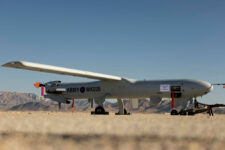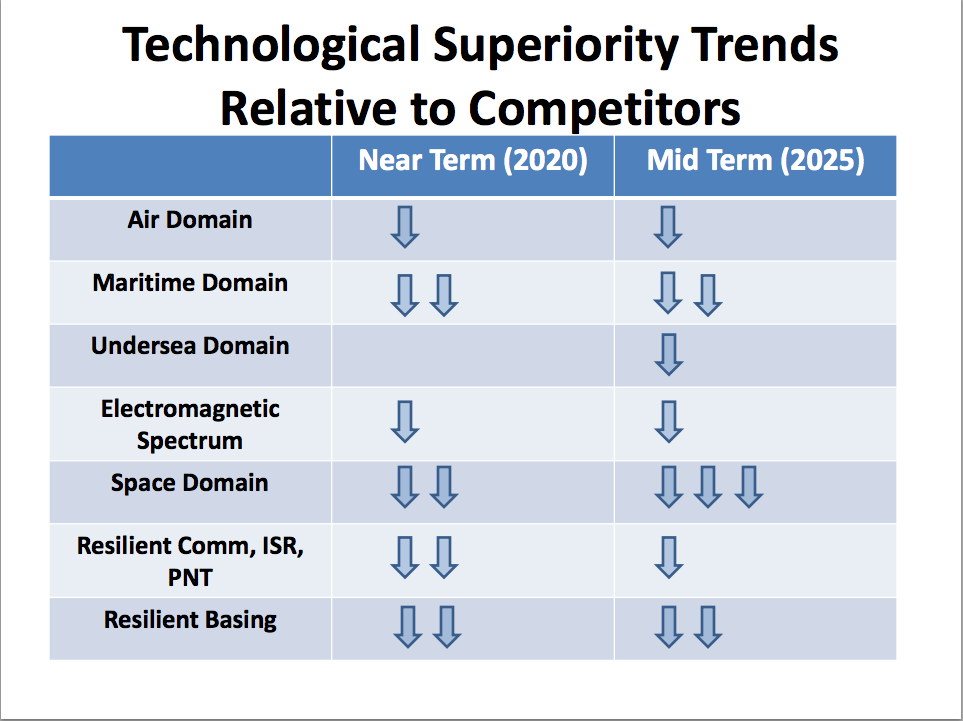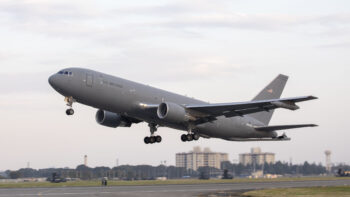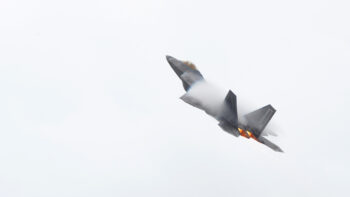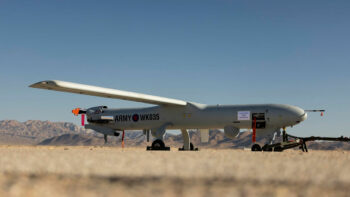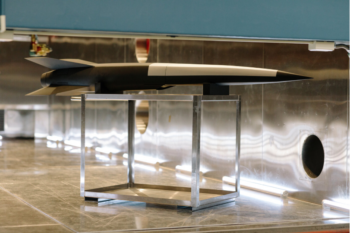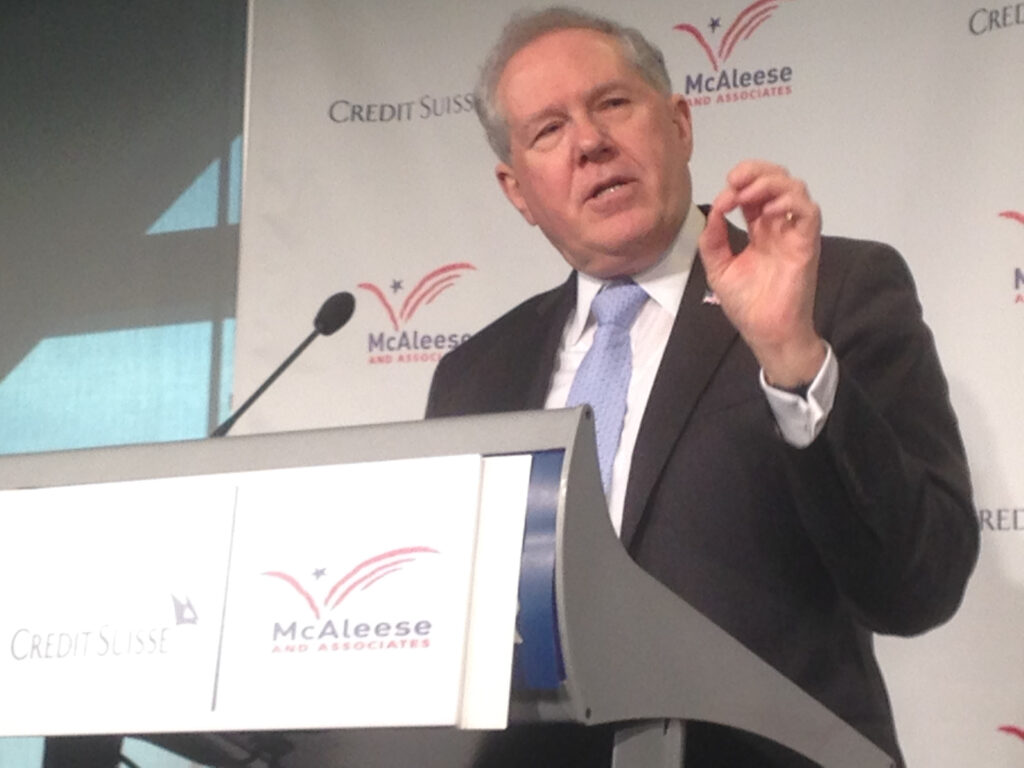
Frank Kendall at the 2015 McAleese/Credit Suisse conference
China has long targeted America’s space assets, having learned from the first Gulf War just how crucial those capabilities were and what an edge they gave American forces. First came their lazing of American spy satellites. Then they destroyed their own weather satellite in early 2007. Since then they have tested at least one more anti-satellite weapon — possibly two. And Russia has continued, Kendall made clear, to press ahead on its own systems.
Meanwhile, the United States remains preeminent in terms of capability but has yet to protect or build redundancy into crucial space systems. Thus the capabilities grow more vulnerable with time.
But space is not the only warfighting area that is under pressure from possible adversaries. The surface fleet is increasingly vulnerable, as are our bases, as is the electromagnetic spectrum on which our networks, smart weapons, and sensors all rely. (Deputy Secretary Bob Work today announced a new initiative to elevate electronic warfare investments).
Kendall said that Russia and China have reduced cycle times and improved their technologies the old fashioned way — by stealing “data through espionage. To be honest they’ve been reasonably successful doing this.”
To regain the American edge and pull away from China, the Pentagon has launched what has become known as the Third Offset Strategy, As part of that effort the military is reaching out to Silicon Valley and other centers of American technology excellence: Google and Apple and Cisco and other high tech leaders that haven’t had much interest in working with the Pentagon. As Kendall noted today at the Credit Suisse/McAleese defense conference, the defense market is fairly small for those companies to spend time cultivating.
I asked him if the tech companies had shown much interest in responding to the Pentagon’s RFI. HIs reply seemed to make it pretty clear the companies see more obstacles than opportunities when it comes to selling to the US military.
But Kendall said Defense Secretary Ash Carter has asked him to set up meetings with those companies. It is in progress. We’ll see how the companies respond.
Boeing inks contracts worth more than $4B for KC-46s, P-8s
The deals include seven new P-8s and 15 KC-46s.






